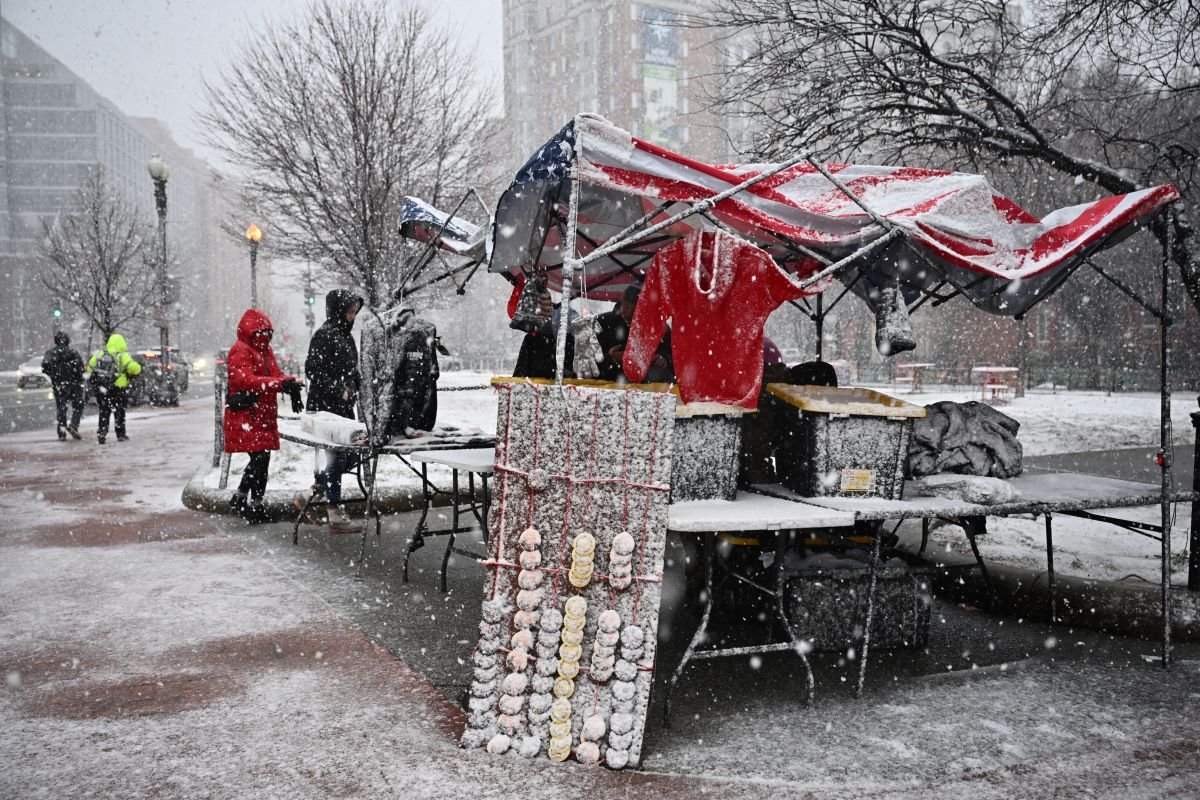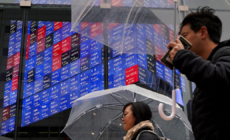-
Trump’s tariff bombardment sends global markets reeling - 6 mins ago
-
Humanoid robot stuns with perfect side-flip acrobatics - 14 mins ago
-
Youths Assaulted in Cluj-Napoca Allegedly for Speaking Hungarian - 18 mins ago
-
Senate Foreign Relations Chair: U.S. Shouldn’t Depend on China for Rare Minerals | Opinion - 22 mins ago
-
Nebraska Cornhuskers vs. Georgetown Hoyas The Crown Highlights | CBB on FOX - 28 mins ago
-
Council of Europe Head Urged to Put Minority Rights Back on Agenda - 53 mins ago
-
Lithuanians bid farewell to 4 U.S. soldiers who died during training exercise - 55 mins ago
-
When Is Elon Musk Resigning From DOGE? What To Know - about 1 hour ago
-
Nathan Ordaz bags an outside-the-box SCREAMER to help LAFC strike first vs. Inter Miami - about 1 hour ago
-
4/2: CBS Evening News – CBS News - about 1 hour ago
Winter Storm Bringing Extreme Cold to Millions in US: What You Need To Know
Millions of Americans are set to be hit by extreme cold and winter storms through Tuesday, with weather warnings in place in more than 30 states, according to the National Weather Service (NWS).
The coldest weather will strike the Midwest and Northeast, while a rare winter storm will continue its track across the Gulf Coast states, bringing rare snowfall to some of the southernmost parts of the country.
Residents are being warned to expect severe travel disruption and take note of safety precautions to stay safe during the bitterly cold blast.
Winter Storm Enzo 2025: Gulf Coast and Southeast in Its Path
The Gulf Coast and Southeastern U.S. are bracing for rare and significant impacts from Winter Storm Enzo throughout Tuesday.
Heavy snow, ice and freezing rain are forecast from eastern Texas to the Carolinas, with snowfall totals of 3–6 inches expected along the I-10 corridor, including cities like Houston, New Orleans and Pensacola.
A mix of freezing rain and sleet in Georgia, northern Florida and the Carolinas could create hazardous travel conditions, widespread power outages and significant disruptions to daily life.
This storm, coupled with frigid temperatures plunging into the teens and 20s, poses risks to infrastructure, including frozen pipes.
AccuWeather
The dangerous conditions are forming as cold air near the ground collides with warm air from the Gulf of Mexico, triggering freezing rain, snow and sleet to fall.
Snowfall in this region is exceedingly rare. The last time New Orleans received measurable snowfall was back in December 2009, according to AccuWeather. Meanwhile, Jacksonville, Florida, hasn’t seen snow since 1989.
Long stretches of I-10 will likely be closed for hours at a time as the region battles against the storm with limited resources.
Impacts on air travel in the worst affected areas will ripple out across the country, as nearly 2,000 flights have already been cancelled today, according to the flight tracking website Flight Aware.
Extreme Cold Warnings
Midwest (Dakotas, Minnesota, Iowa, Wisconsin, Illinois)
The Midwest is set to be hit with the coldest temperatures, as “dangerous wind chills” reach 30 to 55 degrees below zero across parts of the Plains and Ohio Valley.
Portions of the Northern Plains may see a return to more normal January temperatures by Tuesday afternoon as downsloping Rockies air spreads eastward throughout the day. The upper Midwest is expected to feel warmer by Wednesday, too.
Such brutally low temperatures run the risk of causing hypothermia, and possibly even frost bite, according to experts at AccuWeather.
Northeast (Interior regions and coastline)
Frigid temperatures ranging from teens to single digits are expected to persist across the Northeast into Wednesday.
According to the NWS office at State College, Pennsylvania, the coldest wind chill values could be as low as 10 to 15 degrees below zero on Tuesday night.
Some lake-effect snow is possible in parts of New York State bordering the Great Lakes.

ANGELA WEISS/Getty
What Experts Are Saying
AccuWeather chief meteorologist Jonathan Porter said in an advisory sent to the media: “A rare winter storm will bring significant snow and ice accumulations to parts of the South that haven’t experienced weather like this in years, or even decades.
“This is not an intense, well-developed storm, but the frigid air interacting with moisture from the Gulf will produce significant snow and ice in places that rarely receive accumulations of snow and ice. This winter storm will virtually shut down travel for days in some areas.”
AccuWeather senior meteorologist and Northeast U.S. expert Bob Larson added: “The most remarkable aspect of the recent cold has been its persistence. The extreme cold outbreak now arriving adds an exclamation mark to what has already been a cold month of January, which according to historical average, is on average, the coldest month of the year.”
How To Prepare for a Winter Storm
Residents in affected areas have been advised to keep a close eye on the latest weather forecasts by the NWS.
Remaining flexible with your plans to avoid being outside at the coldest parts of the day, such as the morning, is also recommended, as is wearing appropriately warm clothing.
“Fill up fuel tanks/batteries to at least half full/charged so that you can stay warm if you become stranded,” the NWS said in a post on X (formerly Twitter). “Have a cold weather survival kit if traveling.”
Do you have a tip on a science story that Newsweek should be covering? Do you have a question about winter storms? Let us know via science@newsweek.com.
Source link































